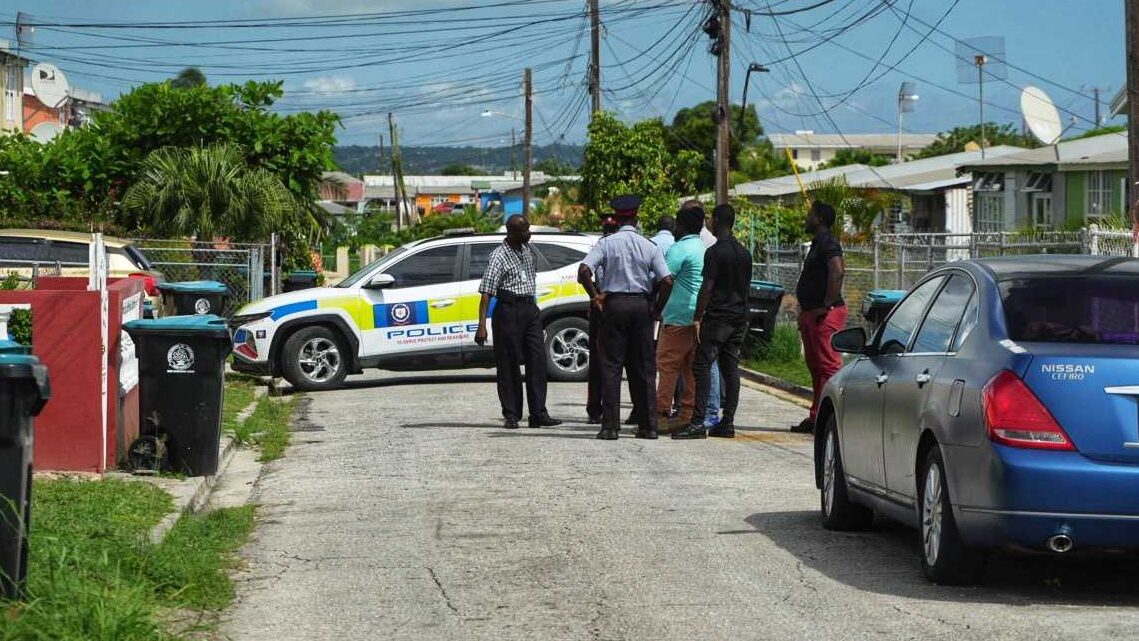Trust Issues in Relationships and Governance: Addressing Safety and Security Concerns for Barbadians

September 21, 2024
The article discusses the impact of trust in relationships, drawing parallels between personal relationships and government-citizen trust in Barbados amid concerns about safety and security measures.
When there is no trust in a relationship, it tends to develop early fractures and may not last long no matter how enamoured two people may be about each other.
The same applies to a government and the citizenry. We suspect that despite the affection that Barbadians have for the current administration, the faith of too many people has been undermined on the question of safety and security, crime and violence.
An observation of the general response to the press conference staged this week suggests that people expected more and that they were a little underwhelmed by the lengthy session at which the main offering was the formation of a National Advisory Council on Citizen Security, headed by noted and highly credentialed academic Professor Velma Newton.
The inclusion of many members of faith-based organisations, civil society, the parliamentary opposition and the business sector was a worthwhile step, but some are questioning whether this panel is expected to be another talk shop.
We are confident that these exemplary men and women will produce a lengthy document from which the government is likely to adopt some of the recommendations.
While the council deliberates and we await the perfectly produced dossier with the assistance of a paid secretariat, will Miss Brathwaite who resides in a government housing unit in Silver Hill, or Mr Bourne from Wotton who has to travel on a ZR van and walk through a track near the block men on his way home, feel safer?
This is not an unreasonable query from those who are innocently on the front line due to their present circumstances.
The rash of shootings over the past year, with the most ghastly occurring last Saturday morning in Nelson Street, Bridgetown where three people lost their lives and eight others were injured, have rocked the society.
There are few Barbadians who would argue that solving the current crime wave will be easy. Several administrations have been through various iterations of crime surges; however, there is no denying that this is the worst.
The current government’s harsh criticism of the former administration — as it should have — stands as a caustic reminder that citizens will not give them a free pass now that they hold the reins of power.
Thus, a return to old hits about the absence of operational scanners in the Bridgetown Port when the current administration came to office in May of 2018, will not have the same effect six years on.
In fact, it was news to the public that the Port scanners on which $25 million was spent, will have to be replaced with newer models with the detection ability to identify disassembled guns.
“The technology has changed and has become even more comprehensive, almost similar to medical imaging technology,” the prime minister disclosed.
“We’ve taken the decision to procure new scanners. We’re in the process of dealing with the investigation of the new technology.”
One would have assumed that the scanners at our ports would have had that capability. Be that as it may, all efforts to tighten national security are welcomed.
It can be argued that had the country’s leadership announced that such scanners were also being placed at the marinas where luxury yachts berth or at major fish landing sites; or that the country’s Coast Guard was being beefed up to a much larger, stronger fighting unit; or that a joint task forced with the United States, Canada, Trinidad and Tobago and possibly Venezuela was being formed as a secondary dragnet to secure our porous coastlines; maybe, if the law enforcement had announced the arrest of a high-profile illegal gun dealer, then Barbadians would have felt much more secure.
One could never discount the crackdown on heavy car tints or the regularisation of licence plate makers, as all crimes should be policed.
However, we fear that the needle has not moved as it relates to the confidence of the general public that much will change.
Ironically, people seemed to have more faith in the gang truce brokered by former block leader Iston Bull Branch than in any of the other initiatives. The reason – it lasted for almost two years and resulted in a near halt to the almost daily shootings and killings; that is, until a few months ago when there appeared to be a breakdown in relations between the state and some parties.


